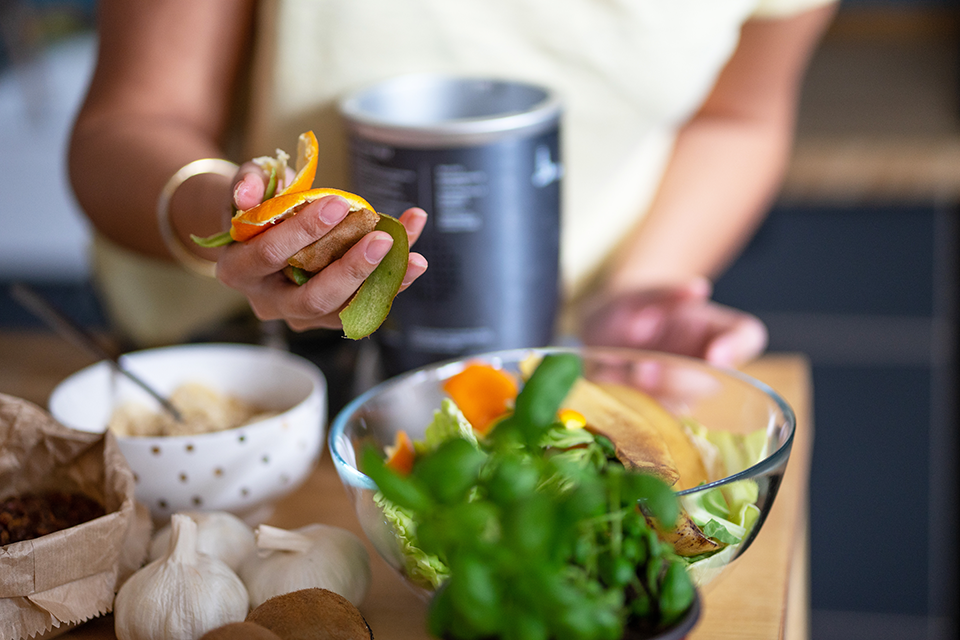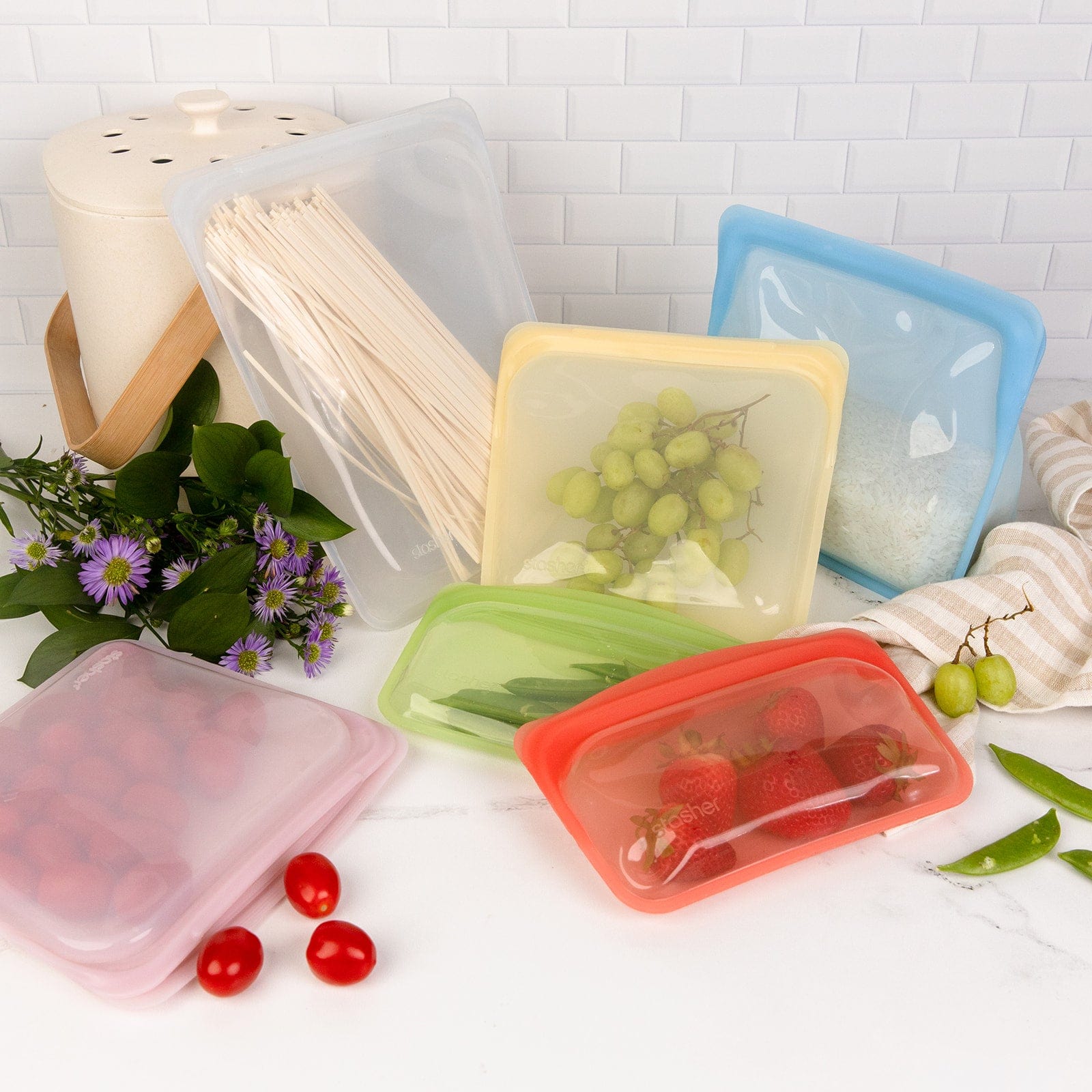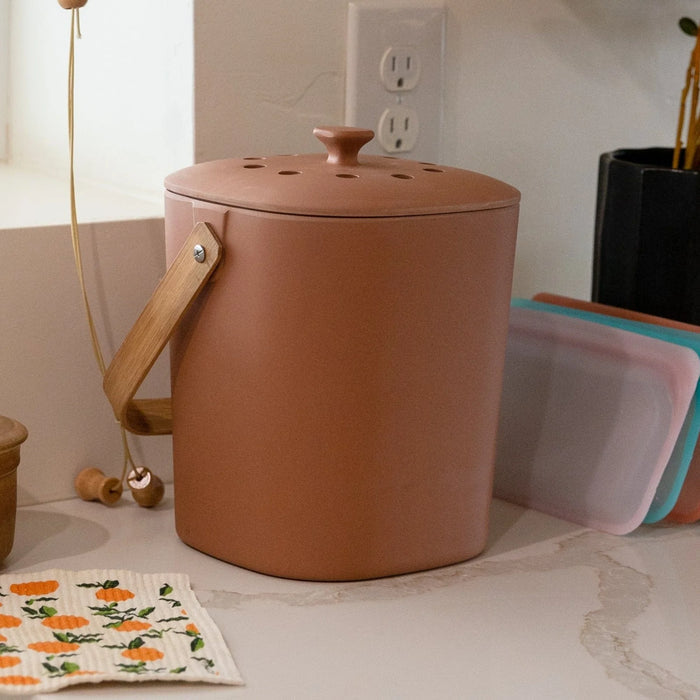Waste Not Want Not: The Great Food Waste Rescue Plan

Food waste is a major problem. Did you know one-third of all food produced is wasted? We’re discussing solutions to food waste that you can do right now.
Estimated Read Time: 4 minutes
Why Food Waste Is Such a Big Deal
So sometimes you forget about the Apples, Blueberries, or bag of Spinach in the back of the fridge. Is that such a big deal? Everyone does it!
Well, it turns out that wasted food isn’t just bad for your wallet, it’s bad for the planet too, especially since everyone does it.
Present day, of all the food produced in the world, it’s estimated that ⅓ of it goes to waste. 33% doesn’t seem like a lot but that rounds out to roughly 1.3 billion tons of food that is harvested and not consumed.
It’s nearly enough to feed every hungry person on the planet.
There are two main issues to the food waste problem:

Greenhouse gas emissions from food rot
When food gets thrown away it gets sent to the municipal landfill, instead of being able to break down into nutrients, the food sits there, rotting and releasing methane, a powerful greenhouse gas.

Wasted materials
When uneaten food gets thrown away, all of the energy (fossil fuels), water, transportation, cooling, land use, border control, and packaging that went into getting that piece of food from a farm to your table has also been wasted.
The good news is you can start reducing your food waste today! Here’s how!
What You Can Do to Help Prevent Food Waste Right Now
Food waste is the most common material disposed of in the U.S. It accounts for roughly 20% of all solid waste. When we reduce food waste, a plethora of other benefits follow!
- You save money.
- More natural fertilizer is created and available.
- It increases food security for millions of people.
- It reduces deforestation.
- It lowers freshwater pollution.
- It frees up water & land for other needs.
- It prevents the use of millions of pounds of fertilizer, billions of kilowatts of energy, and millions of greenhouse gas emissions.

The easiest way to tackle food waste is by making small changes to your habits around food.
- Plan, prep, and stick to your grocery list (you knew this was coming).
- Freeze before flinging — that is, freeze fruits and vegetables for smoothies, shakes, and baking; freeze leftovers for an emergency meal; and freeze herbs before they go bad.
- Eat your leftovers and get creative if you need to (also see #2).
- Portion out your meals.
- But don’t over-plan (plan for leftovers, days you go out to eat, etc. to avoid having too much food on hand).
- Repurpose your food scraps — turn them into seasonings, broths, and frugal meals!
- Donate extra food to community sites and organizations.
- Store your vegetables properly to increase their lifespan.
- Check your shelves before you shop!
- Shop local and seasonal to shorten food miles.
- Support local farm-to-table restaurants.
- Eat less meat (seriously, meat has higher emissions).
- Follow the right people, like the Zero Waste Chef!
- Get involved and advocate for legislation that tackles local food waste.
- Talk to local restaurants, stores, and officials about food disposal and composting.
- Compost, compost, compost!
- Compost at home with vermicomposting or a Subpod.
- Get your neighbors involved and compost together.
- Start or join a community garden with a compost pile.
- Look into local farms that take food scraps for animal feed.
- Look into local municipal or private composting services that offer pick-up, drop-off, or bin services.
Learn More About the Food Waste Problem
Books
Check out your local bookstore for the following:
- How Bad are Bananas?: The Carbon Footprint of Everything, by Mike Berners-Lee
- Eating Animals – Should We Stop?, by Jonathan Safran Foer
- Waste Free Kitchen Handbook, by Dana Gunders
Movies
Podcasts
- Unreasonable Impact: Food Solutions, Ep. Ending Food Waste (Listen on Spotify)
- Sustainable Minimalists, Ep. Grocery Store Hacks (Listen on Spotify)
- Practical(ly) Zero Waste, Ep. 133: Recycling Food Waste (Listen on Spotify)
Scrap Your Wasteful Products for These Sustainable Swaps to Reduce Your Food Waste
Shop ZWS to help reduce your waste with sustainable alternatives to everyday products!

Stasher Bags
From $9.99

Beeswax Food Wraps (Set of 3)
Vegan options available
$26.00

Vegan Face Moisturizer
$26.00

Worm Factory Compost System
$137.95

Countertop Compost Bin
$40.00

The Hungry Bin Worm Farm Compost Bin
$369.00

Zero Waste Vegetable Brush
$6.99

Reusable Coffee Filter
$20.00
Support Food Equality This Week!
April 24th-30th 2023, your purchase prevents food insecurity! We’re partnering with Feeding America and donating $2 for every order placed.
SHOP AT ZWS

